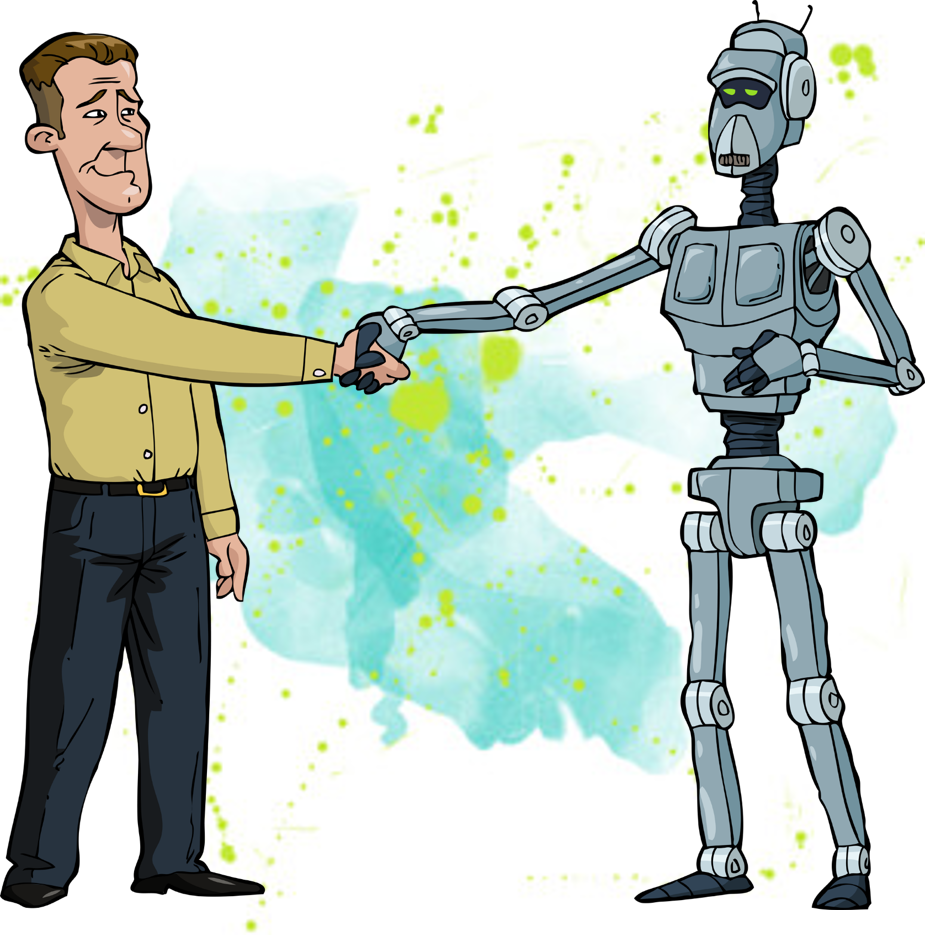“Humans are more likely to work with smart machines in the digital enterprises of the future than be ousted by them,” writes Charles McLellan (@charlesmclellan), “but the possibility of economic and social disruption needs to be on the political agenda.”[1] I agree entirely with McLellan’s latter point; but, without thoughtful planning and execution by business leaders collaboration between humans and machines may not be the likeliest future outcome. After all, dealing with machines is generally easier for business leaders than dealing with humans. I’m convinced, however, that a future in which machines replace humans in the workforce is bad for both individuals and society. That’s why jobs sustainability needs to be high on all stakeholders’ priority lists. In a letter to the editor of the Financial Times, Earl Yardley, Director of Industrial Vision Systems, optimistically stated his belief that human/machine collaboration will emerge as the primary working environment in the future.[2] “From our own experience,” he wrote, “we use robots to work collaboratively with humans who are then redeployed to higher-value tasks that the robot cannot do — not the other way round.” Yardley’s company builds the “eyes” for collaborative robots, which accounts, in part, for his optimism. He continues:
“Collaborative robots are used in the workplace to assist human workers with inspection processes and it won’t be long before future inspection benches will include space for an operator and a robot to work in partnership as part of the quality control process of production. Vision systems can now review quality at a higher level than humans and allow robots to pick up a product and examine it. This is the future of the global workforce.”
I applaud his optimism and pray he’s correct; but, a future characterized by a collaborative human/machine workforce will not emerge without forethought and deliberate action. Yardley’s letter was motivated by series of articles published by the Financial Times on the subject of automation and the future of work. One of those articles was written by Illah Nourbakhsh, a Professor of Robotics at Carnegie Mellon University. He notes, “Industrial automation’s relentless march is the subject of scrutiny by economists eyeing its long-term ramifications on wealth and employment.”[3] Describing industrial automation as a “relentless march” inspires more concern than confidence that business leaders are seriously considering the long-term ramifications of displacing millions of workers with machines. Nourbakhsh adds, “Should we celebrate or worry? That depends on your degree of technology optimism — on whether you believe robots will free us from the toil of work and enable an age of abundance; or force a shift of capital ownership, concentrating information resources and power in the hands of a robot-owning elite?” In another FT article, Andrew McAfee (@amcafee), co-author of the book Race Against the Machine, states that he isn’t concerned about the rise of a sentient network that threatens humankind, but he is concerned about economic dislocation.[4] He explains:
“A much more proximate and real threat, and hence a scarier one, is that of economic dislocation. Robots (a term I am using here as shorthand for the modern, rapidly expanding toolkit of digital technologies) are quickly learning lots of skills — everything from understanding natural language to diagnosing disease to driving cars — that used to be the preserve of human beings alone. These skilful machines are going to spread throughout the world’s economies in the years to come, and they are going to automate some people, perhaps many of them, out of their jobs. Surely this means that robots are our foes? No, it absolutely does not. To believe otherwise is to reduce us humans to the status of mere labourers — and that is an offensively reductive view of our species. … Robots are not our enemies — for two important reasons. First, they are not going to put us all out of work any time soon. There are still a lot of things that technology cannot do — from clearing a table to coaching a team to writing a novel. And even the biggest techno-optimists do not think that these things will be 100 per cent automated in the near future. … The second and much more important reason that robots are not our foes is that they make us richer overall. By increasing our capabilities and productivity, they create more bounty and abundance. We like to communicate, learn, entertain ourselves, travel and consume goods and services. Technological progress lets us do more of all of these things for a given amount of money (or, increasingly these days, for no money at all), and at higher levels of quality. It is true that the way most of us gain access to much of this bounty is by getting paid for our labour. It is also true that this ‘labour bargain’ is becoming a tougher one for more and more people as their skills become less valuable, because of both globalisation and technological progress. We need to figure out how to deal with this situation. This will be one of the most important policy arenas over the coming decades.”
I couldn’t agree more that figuring out how society is going “to deal with situation” is critical to humankind’s future. Thomas H. Davenport (@tdav), a Distinguished Professor at Babson College, and Julia Kirby (@JuliaKirby) write, “It seems everyone has suddenly awakened to the threat of smart machines.”[5] Like others, Davenport and Kirby expect smart machines to encroach into areas traditionally limited to humans. They explain, “Slowly but surely, the worlds of artificially intelligent software and robots seem to be converging, and the boundaries between different cognitive technologies are blurring. In the future, robots will be able to learn and sense context, robotic process automation and other digital task tools will improve, and smart software will be able to analyze more intricate combinations of numbers, text, and images.” On the other hand, they agree with Yardley that human/machine collaboration will likely characterize the future workforce. “Humans and cognitive technologies will be working together for the foreseeable future. Humans will always want to know how the cognitive technologies came up with their decision or recommendation. If people can’t open the ‘black box,’ they won’t trust it. This is a key aspect of augmentation, and one that will facilitate rapid adoption of these technologies.” As President and CEO of a cognitive computing firm, I agree with their point about trust. Which is why our cognitive solutions are a “glass box” rather than a “black box.” Davenport and Kirby conclude, “Clearly, smart machines are advancing at the things they do well at a much faster rate than we humans are. And granted, many workers will need to call on and cultivate different capabilities than the ones they have relied on in the past. But for the foreseeable future, there are still unlimited ways for humans to contribute tremendous value. To the extent that wise managers leverage their talents with advanced technology, we can all stop dreading the rise of smart machines.” McAfee adds, “If we cannot figure out how to deal with this, and how to make sure that the fruits of robots’ labour are shared in a way that reflects our shared values and protects our most vulnerable, then shame on us.”
Footnotes
[1] Charles McLellan, “Artificial intelligence in business: The state of play and future prospects,” ZDNet, 1 September 2015.
[2] Earl Yardley, “The future is collaborative robots in the workforce,” The Financial Times, 5 May 2016.
[3] Illah Nourbakhsh, “Fears and joys of a life with social robots,” The Financial Times, 6 May 2016.
[4] Andrew McAfee, “We should embrace robots, not fear them,” The Financial Times, 5 May 2016.
[5] Thomas H. Davenport and Julia Kirby, “Just How Smart Are Smart Machines?” MIT Sloan Management Review, 15 March 2016.





